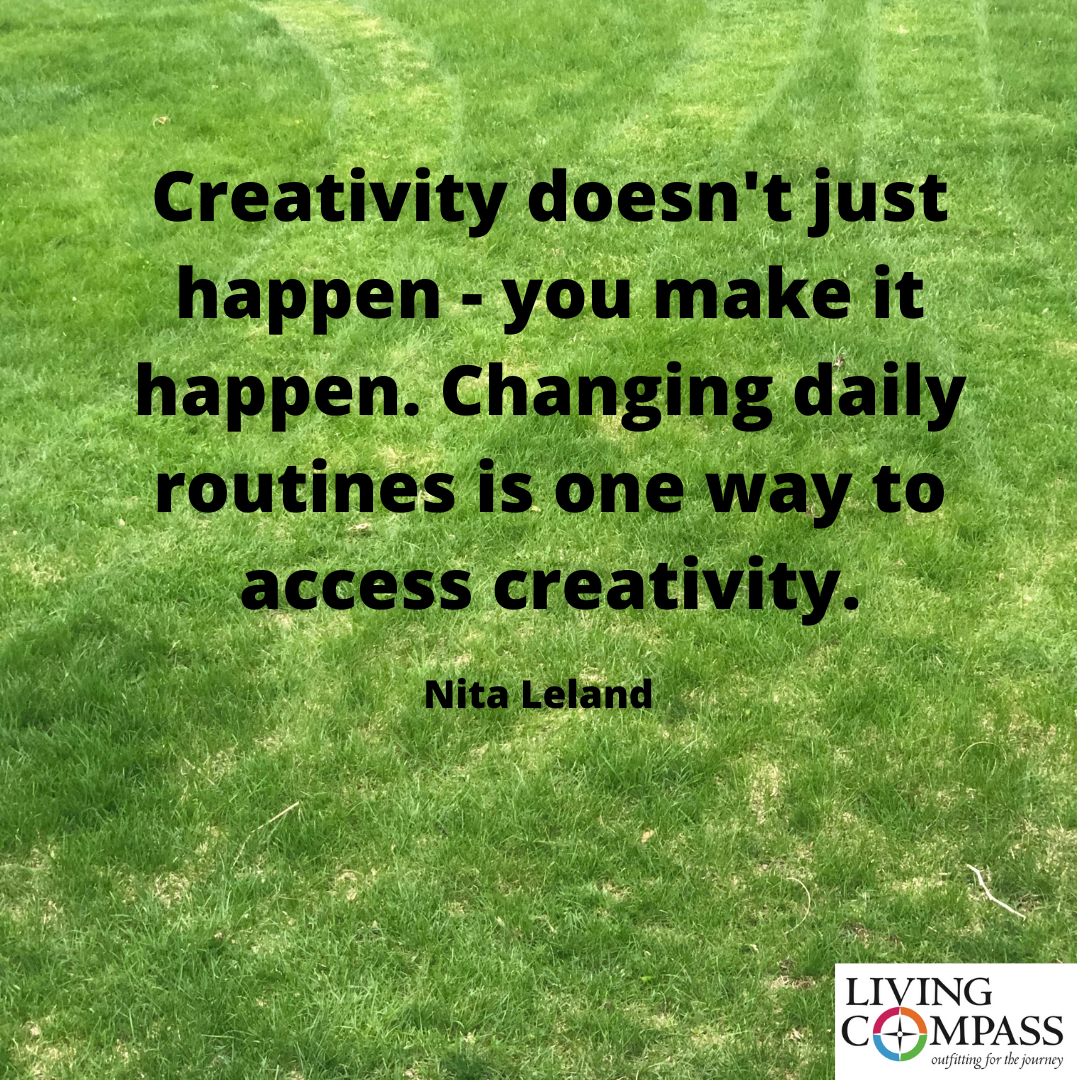Changing Our Routines
Our five-year-old grandson has recently been taught all the safety procedures needed to operate their family’s small electric lawnmower, and to say he is proud is quite an understatement. On a recent visit to our house, he wanted to show off his new electric mower abilities.
An adult needs to walk with him when he operates the mower, so I was delighted to volunteer. We got the mower in place in the backyard, and just before we started it, I explained to him the "right" way to cut the grass. I explained that I go around the yard's perimeter first and then gradually work my way in with each successive pass. He cast a look of disbelief my way and then said, “Pops, that's boring, and besides, that's not how I do it. I just go wherever I feel like going.” And with that, he started the mower and was off. My backyard currently is about one-third mowed in the most creative, random pattern you can possibly imagine. By the look on his face, along with his shrieks of delight, I must say he seemed to be having a lot more fun cutting the lawn than I ever do. (You can see a sample of how our backyard currently looks in the photo quote box above as the background for that is a photo I took today).
I have resisted my urge to go and finish mowing the backyard “correctly,” and so it is currently serving as a reminder that sometimes a person just needs to shake up their habitual ways of doing things. It’s not that routines aren’t necessary. But we all know that sometimes routines can turn into ruts. Individuals, relationships, and organizations can lose imagination and passion when they become so beholden to established patterns that limit their ability to see new and creative ways of doing things.
In my counseling and coaching work, it is not uncommon for me to hear comments such as, “We've never done it that way before,” and “We don’t go there—that’s just not something we talk about.” Unconscious rules often govern individuals and relationships, and the role of counseling is often to raise those unconscious rules into awareness so that they can be re-examined. When this happens, people may discover that maybe it's okay to be more assertive, or perhaps it's okay to address conflict more directly, or maybe it's okay to try new and creative ways of doing things. And perhaps it is even okay to set different boundaries and say “no” more often.
And, now I'm going way outside my comfort zone here…, but maybe, just maybe, it’s okay for me to try a whole new approach to how I mow my yard.
Subscribe Now to Weekly Words of Wellness:
Click the button below to signup for the e-mail version of Weekly Words of Wellness. This weekly article can be shared with your community electronically and/or used for group discussion.
You can unsubscribe at any time.

